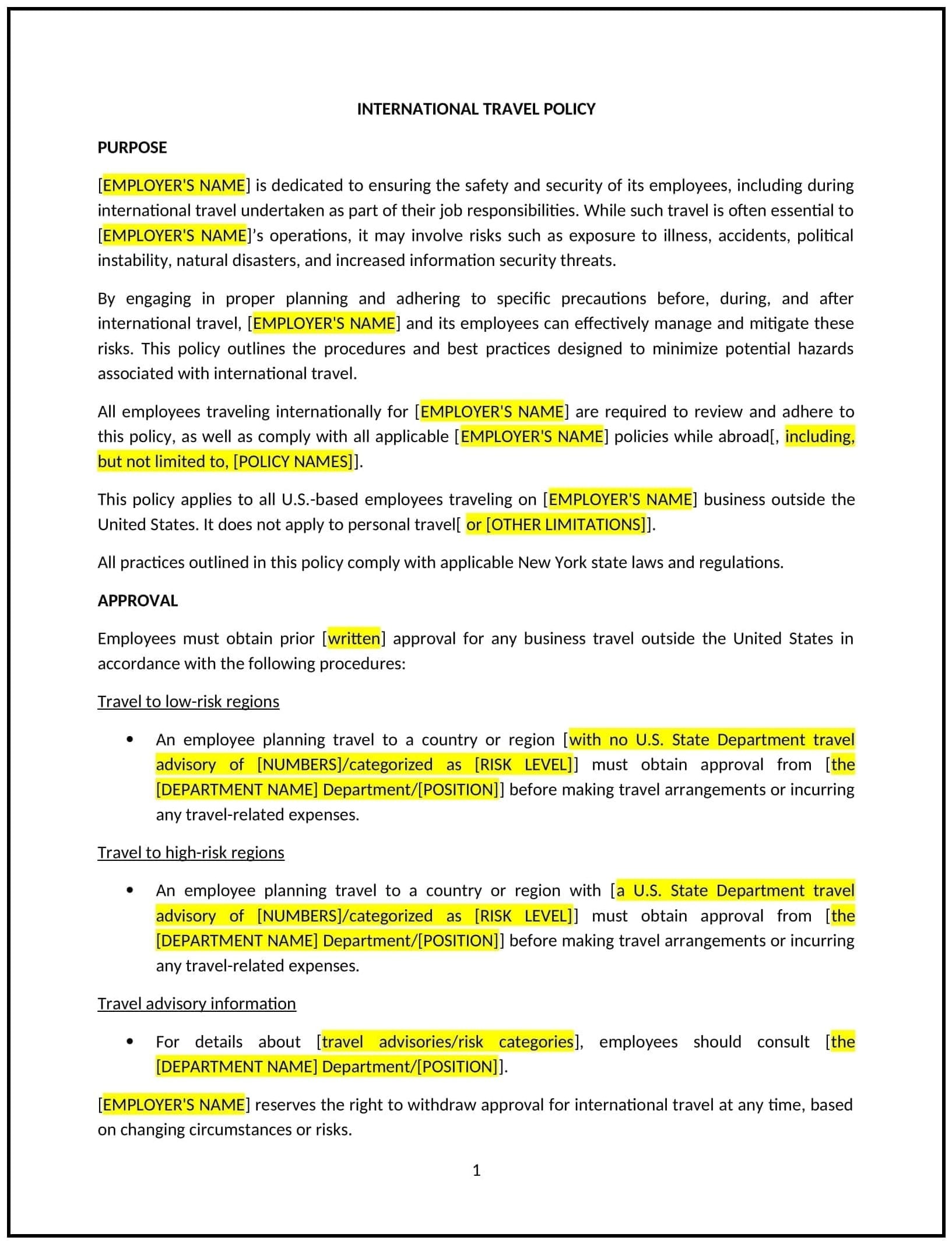International travel policy (New York): Free template
Got contracts to review? While you're here for policies, let Cobrief make contract review effortless—start your free review now.

Customize this template for free
International travel policy (New York)
This international travel policy is designed to help New York businesses provide clear guidelines for employees traveling abroad for work-related purposes. Whether businesses are managing travel logistics, addressing safety concerns, or setting expense reimbursement standards, this template supports structured and efficient international travel practices.
By adopting this template, businesses can streamline travel processes, enhance employee safety, and manage costs effectively.
How to use this international travel policy (New York)
- Define eligible travel: Clearly state the types of trips covered under the policy, such as client meetings, conferences, or training programs.
- Establish approval procedures: Outline the steps employees must take to request travel authorization, including timelines, required documentation, and points of contact.
- Address expense policies: Provide guidelines for reimbursable expenses, including transportation, accommodation, meals, and incidentals.
- Include safety measures: Highlight steps employees should take to prepare for safe travel, such as obtaining necessary vaccinations or registering with relevant authorities.
- Detail reporting requirements: Specify the expectations for documenting travel expenses and submitting receipts for reimbursement.
Benefits of using an international travel policy (New York)
This policy offers several benefits for New York businesses:
- Promotes efficiency: Structured guidelines simplify travel planning and approval processes, saving time and resources.
- Controls costs: Clear expense policies help businesses manage travel budgets and avoid unnecessary expenditures.
- Enhances employee safety: Providing travel safety guidelines and resources reduces risks during international trips.
- Supports compliance: Aligning with tax and labor regulations ensures businesses meet reporting and reimbursement requirements.
- Builds trust: Transparent travel policies foster trust between employees and employers by setting clear expectations for work-related travel.
Tips for using this international travel policy (New York)
- Provide pre-travel guidance: Offer employees resources, such as checklists, to prepare for international travel, including visa applications and currency considerations.
- Use preferred vendors: Encourage employees to book through designated travel agencies or platforms to streamline logistics and manage costs.
- Monitor travel risks: Stay updated on global travel advisories and provide employees with resources to address emergencies abroad.
- Encourage clear communication: Ensure employees have access to company contacts for assistance during travel.
- Review periodically: Update the policy to reflect changes in international travel requirements, business needs, or reimbursement standards.